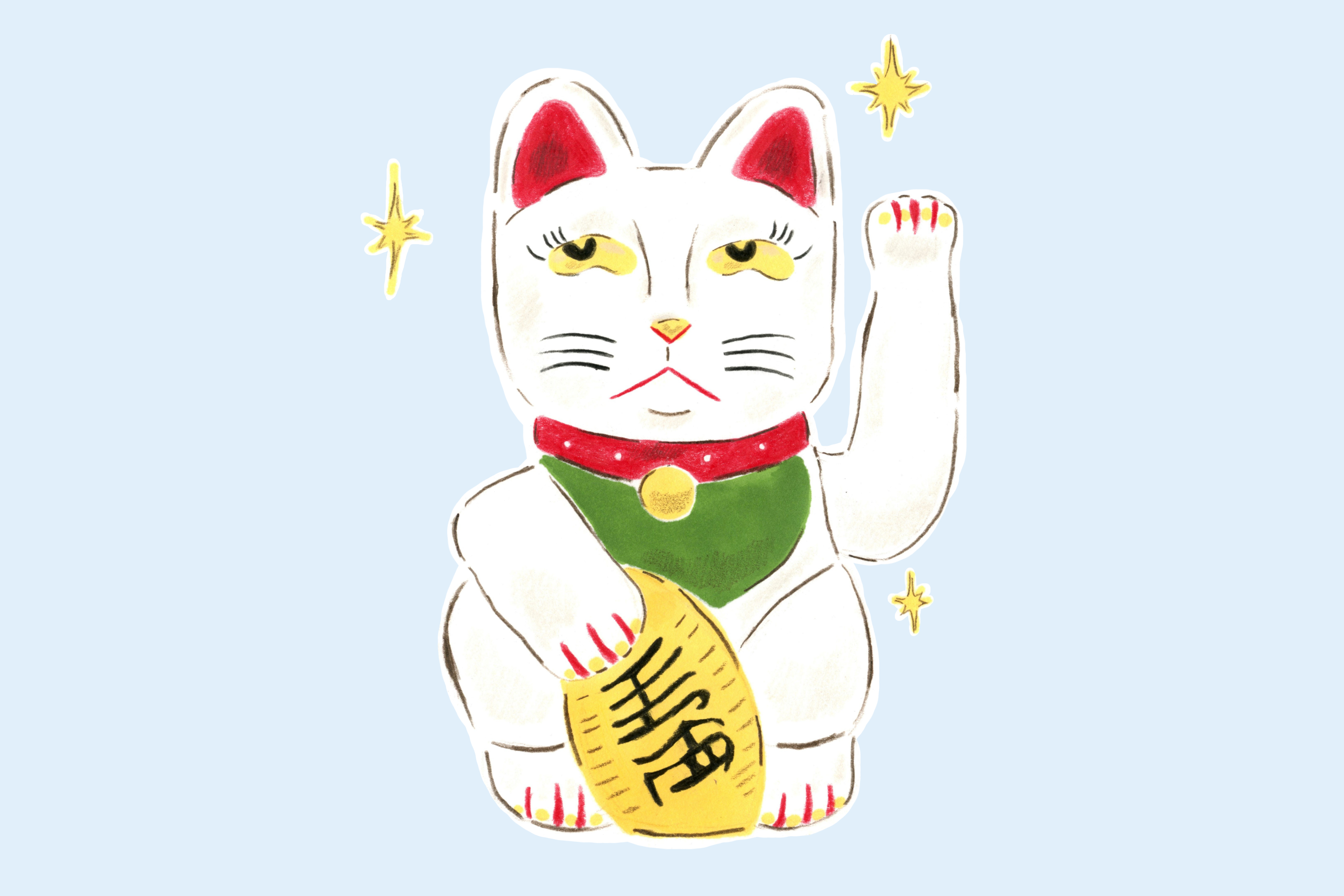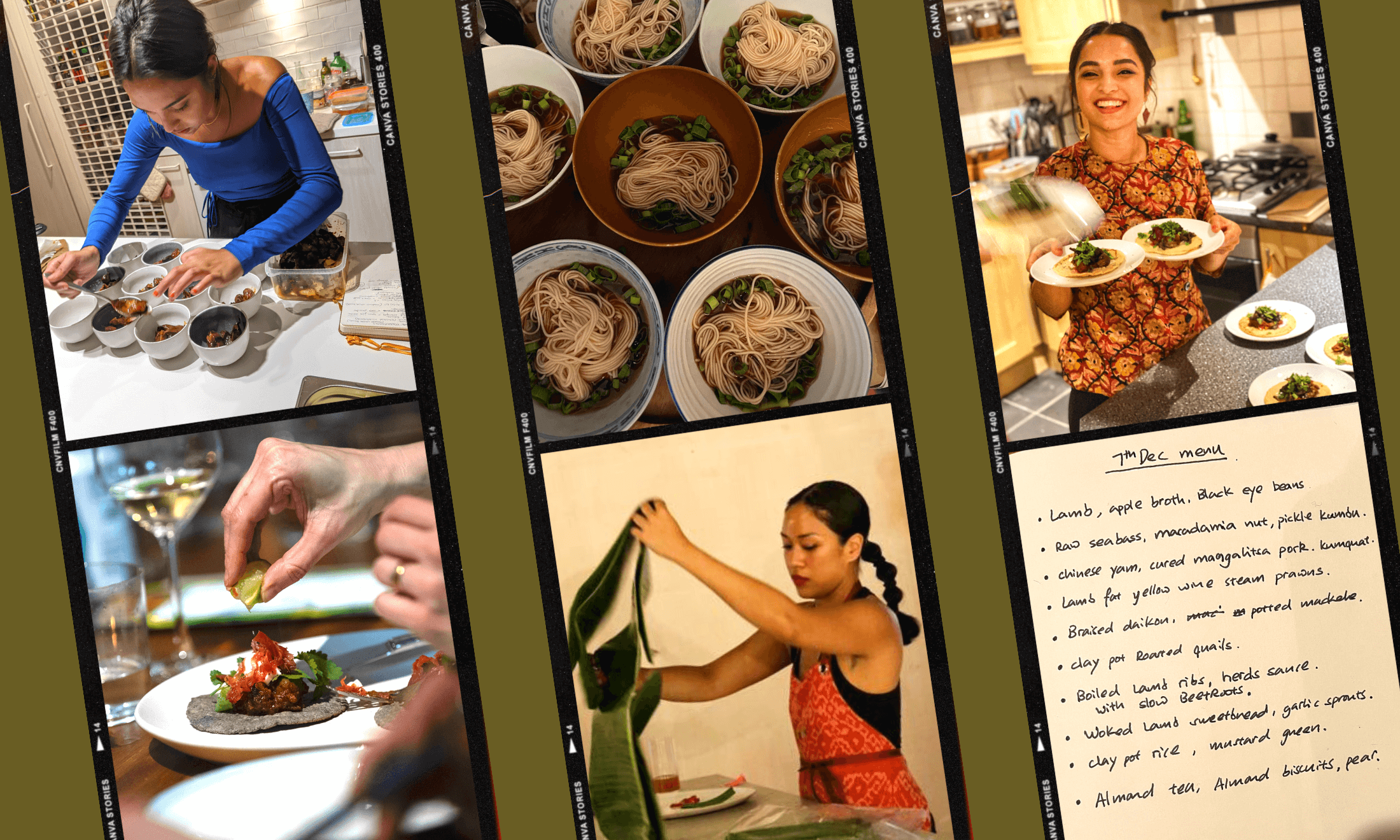
What Gordon Ramsay’s new restaurant Lucky Cat says about food appropriation in 2019
Anna Sulan Masing
29 Jun 2019
Illustration by Javie Huxley
This week sees the opening of Gordon Ramsay’s latest restaurant, Lucky Cat, in Mayfair London. It is described as an “Asian Eating House” (with early press releases calling it “authentic” and “vibrant”). They state that it was inspired by the “drinking clubs of 1930s Tokyo and the Far East” and one of the restaurant’s cocktails is called “White Geisha”. In fact, Geishas were unlikely to be found in 1930s drinking dens. And in all, it is a sweeping approach to the cultures of Japan and the continent of Asia.
The restaurant was met with heavy criticism around appropriation in the run-up to it’s opening. A pop-up event showcasing Lucky Cat’s menu in April brought to a head the conversation of cultural appropriation in the food and restaurant industry in the UK.
The event was attended by 30+ invited journalists and industry professionals, only one of whom was of East Asian heritage – food journalist Angela Hui. Angela immediately called out the lazy homogeneity of the menu and pointed out that the food was poorly executed and simply bad, through live posting on Instagram stories. “I can only drink thru the pain that this is an ‘Asian’ event” read one story. The next day, Eater London published a piece by Angela, re-capping her thoughts.
“It is not that cultural appropriation of food is a new thing, but rather there is a growing voice that is willing to call it out”
The response from Gordon was to ignore the critique on the food and post to Instagram, calling Angela out by name. This lead to mainstream media coverage and Twitter debates amongst restaurants and the food industry, and it ignited the wrath of many of his six million followers. Angela was sent a barrage of insults and even some death threats.
The privilege at work here was Gordon’s ability to take control of a narrative due to a huge social media following – backed up by PRs, lawyers, international business. He dismissed the voice of an East Asian British food writer and focused on a (perceived) personal critique. He did not need to be self-reflective and to negotiate his position of power. He simply exercised his power to silence.
So why is it important now? This incident comes amidst a number of similar situations. For example, this year Lucky Lee restaurant in New York and last year Jamie Oliver’s Jerk Rice were both met with backlash from the communities they were supposedly inspired by. It is not that cultural appropriation of food is a new thing, but rather there is a growing voice that is willing to call it out.
Food writer and tea expert Jonathan Nunn explains cultural appropriation as “merely the canary in the coal mine to talk about more fundamental structural injustices that occur in a wider context, not necessarily the injustice in and of itself”. Instead of examining power dynamics, narratives, privilege and the emotional context of food – details around the meaning of authenticity and who is allowed to cook what food muddies the water.
Speaking to Angela herself, she articulates that “this romanticism and fetishisation of different cultures is dangerous because it gives the sense that everything’s hunky and dory nothing’s wrong, it covers up PoC’s experiences, history and the colonialism”.
“The problem with Lucky Cat comes from the lack of context, the lack of research, and the lack of platforming those already cooking these cuisines”
Finding a way to situate yourself within the context of your work – be it in food, music or fashion – is a way to negotiate those intersecting dynamics. And what has been lost within the debate around cultural appropriation is that this is work to be done by all. It isn’t an attack specifically on white, wealthy, male chefs but rather a possibility to examine methodology and privilege. This is related to the concept of excellence; it is understood that chefs study for years in Western cuisine and techniques to reach high levels of skill and credibility, whereas migrant’s cultural food landscape can be learnt from a three-month trip to Thailand.
There are of course chefs in the UK that are influenced by other cultures, or looking back to their heritage, that aren’t culturally appropriating. Angela explains how Tim Anderson from Nanban “studied Japanese history in college, and lived there for two years. Chef Andy Ricker spent 13 years learning about Thai cuisine before starting the restaurant chain Pok Pok; Jeremy Chan and Iré Hassan-Odukale at Ikoyi are also key in understanding how to reference and be influenced by different foods”.
By situating yourself, you are able to navigate your relationship with culture, food and your privilege. Zoe Adjonyoh of Zoe’s Ghana Kitchen speaks about this idea in terms of “gaze”. She is very clear about understanding herself as a mixed-race black, Irish, Ghanaian woman and that she isn’t using Ghanaian food for financial gain – her gaze is about reflecting her own identity through her Ghanaian heritage.
“There are of course chefs in the UK that are influenced by other cultures, or looking back to their heritage, that aren’t culturally appropriating”
Marie Mitchell, chef and co-founder of Island Social Club, talks about a re-rooting of Caribbean identity in London. It is the exploration of being a second or third generation migrant and what that means within London – she sees her food as a constant evolution as she researches and travels.
For Marie, exploration into identity through food came from a place of both privilege and otherness. Being one of few black people at her school and university, she felt keenly aware of her difference, but also of her advantages. At times, she was accused of “not being black enough”. Although the sentiment behind that insult was negative, she did reach a point where she wanted to find out more about her blackness.
“Food seemed a natural way in,” she explains. It was through research, reading old recipe books, growing her own herbs, cooking with her father and listening to stories, that her business developed.
By situating yourself within your work you are also able to avoid conflating a whole continent into a few marketing one-liners and erasing cultures, people and identities.
“Her food sits within a global landscape and she has immense respect for the ingredients and techniques developed by chefs and cooks before her”
Like Gordon, Chef Elizabeth Haigh has experienced success and recognition from the Michelin Guide, earning a star when head chef of Pidgin in East London. As well as taking influence from her British and Singaporean heritage, she has been influenced by the global metropolis of London. Her business, Kaizen House, is named after the Japanese philosophy of continuous improvement.
Elizabeth’s Instagram feed details the background of her dishes, information on ingredients and how to use them. Her food sits within a global landscape and she has immense respect for the techniques developed by those before her. She takes her research seriously and in telling the stories of these dishes, like Marie and Zoe, Elizabeth situates herself in the work.
All three of these chefs are aware of their privilege and understand that the food world is not an even platform. “It’s not just about good food. Migrant communities might not even know where to start,” says Zoe. So, Marie adds, there is a responsibility to tell the story well. “If you have the privilege to have a voice, you have to use it.”
As NYU Professor Krishnendu Ray tweeted in April, “the quarrel over cultural appropriation is a sign of the entry of a professional middle class of color that has the capacity to talk back to traditional gourmandism. Social media reduces the cost and broadens the opportunity for talking back”.
Which brings us back to Gordon. “[If] someone like me, who is a lowly freelance journalist/nobody, takes the time and effort to try to research something the best of my ability to ensure I’m reporting and writing correctly, sensitively and with passion could do it, then why can’t bigger names with more influence do it?” Angela asks.
The problem with Lucky Cat comes from the lack of context, the lack of research, and the lack of platforming those already cooking its cuisines. The restaurant homogenises a whole region of the world and diminishes cultures for consumption in a wealthy central London location. It could have only been done by a person with power; because for them, to get it wrong doesn’t mean the end of their livelihood.









